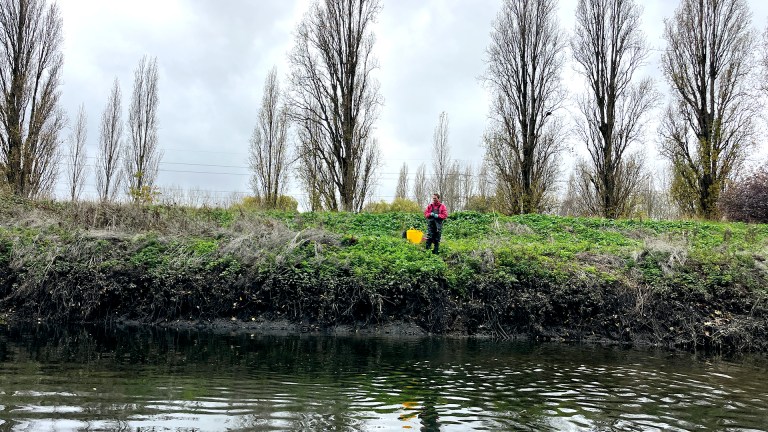If you are unable to make a donation during daytime hours, look into local supported accommodation schemes – they’re more likely to be able to take donations at unusual hours.
Alternatively, you might have a local community fridge. Championed by environmental charity Hubbub, the fridges are stocked by local businesses and residents with any surplus food and function on an honesty basis. The network was set up in an attempt to connect communities as well as help those struggling to put food on the table, and Hubbub’s online network map will detail where your nearest fridge is.
Instead, you might be aware that it’s 2018, and tech is king. That’s why Tessa Clarke and Saasha Celestial-One launched OLIO, a smartphone app that acts as a surplus-food marketplace. Combining their experiences of farming and innovative reuse, the pair found that one in three people felt “physically pained” by having to discard good food, and were shocked that the alternatives were sparse.
In 2015, the full version of the platform was released: it connects neighbours with each other and local businesses, letting users list any items they have to give away and arrange a pick-up through private messaging. (A Hubbub poll found that over 80 per cent of people would be happy to receive food from a neighbour.) If an app isn’t for you, a number of localised Facebook groups dedicated to sharing food have developed in the wake of cuts to benefits and public services.
That said, it can be difficult in the Christmas rush to find time to donate or arrange a food exchange. That’s why charity FareShare set up permanent collection points in more than 100 Tesco stores UK-wide where they accept store-cupboard essentials and non-perishable items. The charity is part of The Global FoodBanking Network, an international movement working to reduce hunger by tackling food waste. The charity is also taking fresh food from the supermarkets and restaurants which would otherwise go to waste and transporting it to frontline charities and community groups across 1,500 towns and cities. Last year they collected nearly 17,000 tonnes of food – 36.7 million meals – and delivered it to homeless hostels, domestic violence refuges and breakfast clubs for children.
Their model is similar to The Felix Project, a branch of the foundation set up by Justin Byam Shaw in memory of his late son. After Felix died from meningitis aged 14, his father was determined to put good out into the world in his name – recalling his son’s horror when he discovered that boys on the opposing team at a football match hadn’t eaten that day.
Meanwhile, ReFood collects surplus food for an entirely different purpose: creating clean energy from waste food using innovative technology. Known as anaerobic digestion, the organisation says that if all the food wasted at Christmas in the UK was recycled into energy, a medium-sized home could be powered for 57 years.
Philip Simpson, commercial director, said: “Obviously the first priority is to eliminate waste, and address the needs of food charities. But when that’s not possible, we need to have a more sustainable attitude to dealing with this waste problem.
“The cost of sending food waste to landfill can be 46 per cent higher than disposing of it via anaerobic digestion.”
Brits have proven that economic uncertainty won’t necessarily deter them from going big at Christmas, least of all when it comes to food. But with a growing section of the population turning to sustainable lifestyles, it seems likely that many will do their bit for the planet and for vulnerable neighbours. In the spirit of Christmas.









